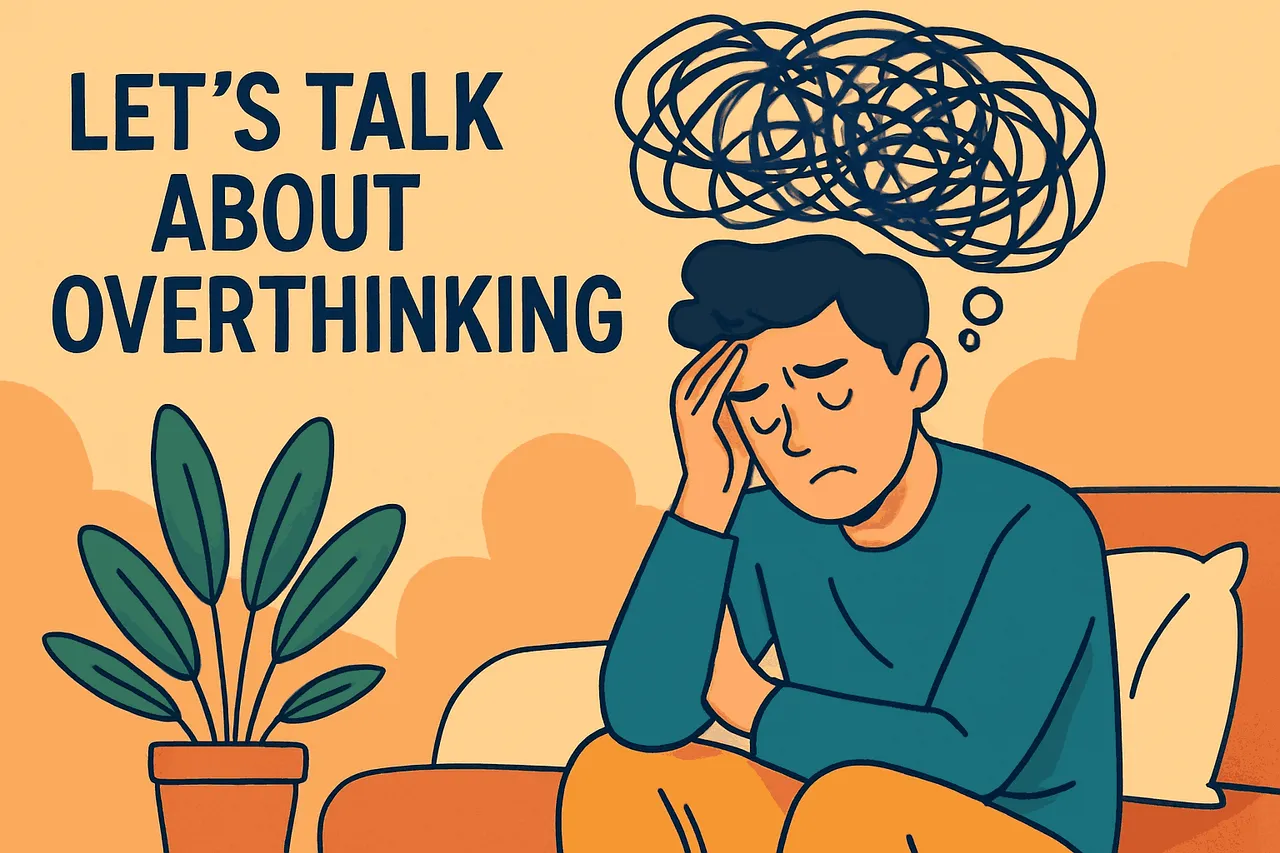
"It’s not the noise outside that gets to us. It’s the noise inside."
I’ve always been an overthinker.
The kind that replays conversations from three days ago and wonders, “Did I sound weird when I said that?” The kind that writes a message, re-reads it five times, and sometimes deletes it altogether because… “what if it comes off wrong?”
Even small decisions — like choosing between two t-shirts — can become mini internal debates. What if I pick the wrong one and regret it later? Sounds silly, right? But if you’re an overthinker too, you get it.
It’s like being stuck in your own head. Not in a deep, reflective kind of way — more like a loop. An exhausting loop.
What Overthinking Feels Like
It drains your energy, even if you haven’t done much physically. It turns short thoughts into long stories. It adds weight to things that don’t really matter.
Some days, I’d spend hours debating something as simple as whether or not to post something. Or reply to a message. Or just say yes to an invitation.
Overthinking loves to whisper doubts like:
“What if you sound stupid?”
“What if they misunderstood?”
“What if you’re not ready?”
And most of the time, nothing happens. No one noticed. No one cared. Life went on — except in my head, where it was still spinning.
What Overthinking Took From Me
Time, mostly. Time I could’ve used to create something, rest, connect with someone, or just… live.
It also cost me chances — I’ve passed on opportunities because I wasn’t 100% sure. Or because I didn’t want to risk looking unprepared. Turns out, “prepared enough” is usually enough.
Overthinking made me feel disconnected from the present. Always analyzing the past or fearing the future.
But I didn’t even see it as a problem at first. It felt like I was just being careful. Thoughtful. Smart.
Truth is, I was scared.
What Helped Me (Bit by Bit)
I didn’t flip a switch and magically stop overthinking. It’s more like learning how to quiet it when it gets loud.
These are a few things that actually helped — not perfectly, but enough:
1. Naming it When I catch myself spiraling, I say it:
“I’m overthinking this. That’s okay. Let’s step back.” Just calling it out takes away some of its power.
2. Moving my body Sounds simple, but walking, stretching, or even doing the dishes helps. Doing something physical pulls my energy out of my head and into motion.
3. Writing it down If my brain is swirling, I open my notebook and let it spill. I don’t try to make it poetic or productive. I just unload.
4. Choosing ‘good enough’ Not every choice needs to be perfect. Now I ask: “Would I regret choosing this?” If the answer is no, I just go with it.
5. Creating space I stopped overloading myself with inputs — less news, less scrolling, fewer notifications. Overthinking feeds on overstimulation. Silence helps.
What I’ve Come to Believe
Overthinking isn’t always bad — it means you care. It means your mind is alive and active.
But it doesn’t always serve you. You don’t need to control everything. You don’t need all the answers before you act. You don’t need to replay old conversations or predict every future one.
You just need to trust yourself — a little bit more each time.
Whenever I get stuck, I ask:
“What would I do if I believed I could handle the outcome?”
That question alone has moved me forward more than any “perfect” plan ever has.
And You?
If you’ve ever felt stuck in your own thoughts — you’re not alone. And if you’ve found ways to deal with it, I’d love to hear them.
Let’s talk. Honestly. No pressure. Sometimes sharing what’s in your head… is exactly what helps quiet it.